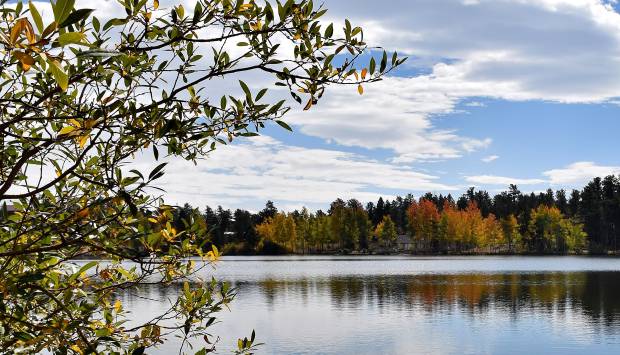Engaging the Community: Larimer County Water Education Series aims to foster understanding and collaboration
The Larimer Board of County Commissioners, in collaboration with the Colorado Water Center at Colorado State University, announces the launch of the Larimer County Water Education Series.
The four-month series of interactive sessions aims to give the community valuable insights into the critical water-related issues and initiatives that impact Larimer County and its residents.
The Water Education Series will span from August to November 2023 and feature four distinct sessions, each focusing on a specific water management and conservation topic. Through presentations, panel discussions, and Q&A sessions, attendees will have the opportunity to engage with regional water experts and gain a deeper understanding of the challenges and opportunities facing Larimer County's water resources.
The schedule for the Water Education Series is as follows:
1. Water Supply & Risks – Aug. 21, 2023, from 6 p.m. to 8 p.m. at the Larimer County Administrative Services Building, 200 W. Oak St., Fort Collins.
2. Water Conservation & Sharing – Sept. 20, 2023, from 6 p.m. to 8 p.m. at the Larimer County Loveland Campus, 200 Peridot Ave., Loveland.
3. Watershed Health & Instream Flows – Oct. 18, 2023, from 6 p.m. to 8 p.m. at the Larimer County Loveland Campus, 200 Peridot Ave., Loveland)
4. What's Next for Larimer County Water – Nov. 16, 2023, from 6 p.m. to 8 p.m. at the Larimer County Administrative Services Building, 200 W. Oak St. Fort Collins.
Each session will include a Water 101 introduction, presentations from esteemed regional experts, a panel discussion, and an open Q&A session. The sessions are designed to provide accessible information and in-depth insights into the complex world of water management. Sessions will be held in person and recorded, and sessions one and four will be live-streamed at www.larimer.gov to accommodate both in-person attendees and those who prefer to participate remotely.
"We are thrilled to bring the Larimer County Water Education Series to our community," said Larimer County Director of Community Planning, Infrastructure, and Resources Lesli Ellis. "Water is a precious resource that affects every aspect of our lives, and these sessions will empower residents with knowledge and tools to contribute positively to the sustainable management of our water resources."
The series will cover a wide range of topics, including water supply and risks, water conservation and sharing, watershed health, instream flows, and plans for Larimer County's water management.
"We are committed to fostering collaboration and knowledge exchange between community members, decision-makers, and experts," said Karen Schlatter from the Colorado Water Center. "The Water Education Series provides a platform to engage with local water issues, community-based perspectives, and innovative solutions."
For those interested in attending, participating remotely, or accessing recordings of the sessions, visit the Larimer County Water Education Series website for more information.
Join us as we explore the intricate world of water management, share insights, and work together to secure a sustainable future for Larimer County's water resources.
About Larimer County:
Larimer County serves all residents and businesses through stewardship of numerous community resources, infrastructure improvement and maintenance, planning services, transparent public records, human and economic health initiatives, and broad community-wide public safety services. The County has a rich agricultural and western heritage that is reflected in our commitment to a high quality of life and preservation of our natural areas.
About Colorado Water Center at Colorado State University:
The Colorado Water Center leads interdisciplinary research, education, and outreach programs to address complex and evolving water-related challenges in Colorado and beyond. We do so by fostering collaboration between higher education and water stakeholders, synthesizing water research findings to inform decision-making and policy, and inspiring the next generation of water leaders.

